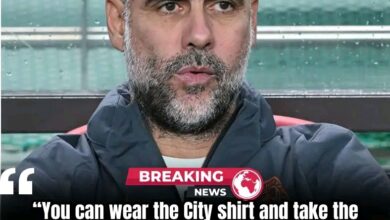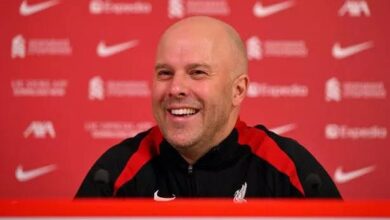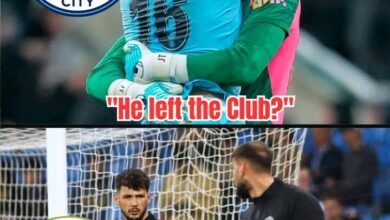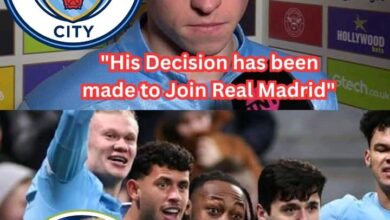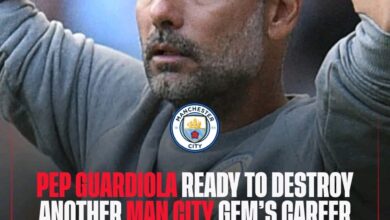It was the worst mistake of my life’ – Five worst Liverpool signings under FSG as owners mark 15 years in charge
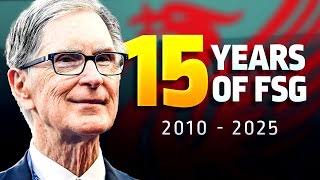
When Fenway Sports Group took over Liverpool fifteen years ago, they promised stability, strategy, and success. They came with the reputation of smart businessmen who understood the value of patience and planning. And for a long time, they delivered. The Champions League triumph in Madrid, the long-awaited Premier League title, and the return of global respect to the club — all these moments came under FSG’s leadership. But behind the trophies and the glory, there were mistakes. Big ones. Expensive ones. Transfers that made fans shake their heads and whisper, “Why did we ever sign him?”
Every football club makes mistakes in the transfer market. Even the biggest and smartest ones. But for a club like Liverpool, whose history is built on passion, precision, and pride, those mistakes are remembered for years. Some of them are even spoken about with disbelief, like old scars that never truly heal. This is the story of five signings that defined the dark side of Liverpool’s recruitment — five transfers that brought more pain than progress, and one shocking admission that still echoes around Anfield: “It was the worst mistake of my life.”
The year was 2014. Brendan Rodgers had just taken Liverpool to the brink of Premier League glory. They had thrilled the world with breathtaking football led by Luis Suárez and Daniel Sturridge. The city was alive again, believing the title drought was finally over. But then came the heartbreak — the slip, the collapse, the tears. And when the summer arrived, Liverpool had a decision to make. How do you replace Suárez, the unstoppable force who had carried them so close to immortality? The answer, as history would show, was disastrous.
Mario Balotelli walked through the doors of Melwood that summer. Charismatic, unpredictable, and controversial — Balotelli was everything Liverpool were *not* looking for. Yet somehow, the deal was done for £16 million. It didn’t take long for fans to realize they had made a mistake. He was the complete opposite of Suárez: where Suárez played with fire, Balotelli played with a shrug. Where Suárez chased every ball, Balotelli waited for it to come to him.
At first, some fans tried to believe. “Give him time,” they said. “He’s got talent.” But as the weeks passed and the goals didn’t come, the patience faded. He scored just one Premier League goal for Liverpool. One. Every goal he scored cost the club £4 million. But even that wasn’t the worst part. Years later, Balotelli himself admitted it. Speaking to Sky Sports, he said the words that made headlines: *“It was the worst mistake of my life.”*
He continued with brutal honesty. “Apart from the fans, who were fantastic with me, and the players, who I had a good rapport with, I didn’t like the club. I had two coaches, Brendan Rodgers and Jürgen Klopp. As people, they didn’t make a good impression on me. I didn’t get along with them.” Those words were cold, painful, and revealing. They summed up his Liverpool career — disconnected, misunderstood, and regretful. It was the end of a chapter that should never have been written.
But Balotelli wasn’t the only one that summer. Liverpool also brought in Rickie Lambert, a player whose story began as a dream. A boyhood Red, Lambert had grown up supporting the club, once working in a beetroot factory before his rise through the lower leagues. When Liverpool came calling for £4 million, it felt like a fairytale. The local lad returning home. But football, as Lambert would learn, doesn’t always follow fairytales.
He gave everything he had — effort, passion, and heart — but he simply wasn’t the level Liverpool needed. The pace, the intensity, the pressure of replacing Suárez — it was all too much. He scored just three goals in 36 appearances. It wasn’t about lack of effort; it was about the cruel reality of elite football. Sometimes, heart isn’t enough. For Lambert, the dream quickly turned into a burden, and the fairytale ended with quiet disappointment.
Then came Lazar Marković. In 2014, Liverpool fans barely knew much about him, but they were told he was the next big thing — fast, technical, and full of potential. The club paid £20 million for the Serbian winger, hoping he would become the spark of the new era. Instead, he vanished. Marković struggled from day one. He couldn’t adapt to the pace of English football, couldn’t find consistency, and looked lost in every system he played. Over five years, he managed just 34 games. When he finally left on a free transfer, fans barely noticed. From wonderkid to forgotten man — it was a silent failure that cost Liverpool dearly.
While some transfers fail quietly, others fail loudly. Christian Benteke’s arrival in 2015 was one of those. Signed for £32.5 million from Aston Villa, Benteke arrived with big numbers: 42 goals in 89 league games. He was powerful, strong in the air, and confident. On paper, he looked perfect. But football isn’t played on paper. It’s played in systems, in moments, in chemistry — and Benteke never fit Liverpool’s.
Under Jürgen Klopp, Liverpool evolved into a high-pressing, fast-moving machine. Benteke, however, was built for a different kind of football — slower, more direct, more traditional. His style clashed with Klopp’s vision. He scored just 10 goals before being sold to Crystal Palace the following year, with Liverpool losing over £10 million in the process. He wasn’t a bad player. He just wasn’t our player. Sometimes, that makes all the difference.
But perhaps the strangest signing of all came in 2021. Liverpool were in crisis. Their centre-backs were all injured — Virgil van Dijk, Joe Gomez, Joel Matip — gone. Panic spread through the club. And in the middle of that chaos, Liverpool turned to Preston North End. They signed Ben Davies. Not the Tottenham one. The other Ben Davies. For £500,000.
Fans were confused. Who was he? Why him? Would he even play? The answers came soon enough — he didn’t. Not once. He was registered, trained, and watched from the sidelines, but never played a single minute in a competitive game. A Liverpool player only on paper, never in reality. By the time he was sold to Rangers a year later, Liverpool somehow made a £4 million profit. It was good business — but a bizarre chapter in the club’s history nonetheless.
Looking back now, fifteen years after FSG took control, it’s easy to celebrate the highs — the trophies, the signings that worked, the heroes who rose to glory. But every success story is balanced by lessons learned the hard way. The signings of Balotelli, Lambert, Marković, Benteke, and Davies each tell a different story of failure — some through bad luck, some through bad fit, and some through bad judgment.
Mario Balotelli’s time reminds us that talent without trust leads nowhere. Rickie Lambert’s story teaches that dreams don’t always survive the weight of reality. Lazar Marković shows how potential can disappear without patience and direction. Christian Benteke is proof that even good players can look ordinary in the wrong system. And Ben Davies? He’s the symbol of desperation — when a great club, even for a moment, loses its plan.
Yet, for all those mistakes, Liverpool rebuilt. They learned. Under Klopp, they found the formula again — recruiting smartly, building chemistry, and valuing identity. Players like Salah, Mané, Robertson, and Van Dijk came in — and suddenly, every wrong turn from the past started to make sense. The pain had taught them how to choose better.
Still, those five names remain in the shadows of Anfield’s great history. Every time a transfer goes wrong, fans remember them. Every time a signing struggles, their stories are retold as a warning. Because for all the glory and gold, football’s memory is long — and it never forgets.
FSG’s journey with Liverpool has been filled with lessons. They built a modern giant, but they also made the kind of decisions that show how fragile football success can be. One wrong signing can set a team back for months, even years. And for every success story written under the bright lights of Anfield, there’s another one hidden in the dark corners of regret.
When Balotelli said, “It was the worst mistake of my life,”he was speaking about his time at Liverpool. But maybe, in a way, Liverpool could say the same about him. Because football, at its heart, is about timing, trust, and truth — and when any of those three go missing, mistakes are made, no matter how big the club is.
Today, FSG can look back proudly at what they’ve built — a club reborn, respected, and feared. But deep down, even they know that the road to glory was not smooth. It was paved with risks, regrets, and reminders of what can go wrong when the heart and the head fall out of sync.
Fifteen years later, Liverpool fans have learned to forgive, but not to forget. Because behind every triumph at Anfield, there are lessons carved in failure. And among those lessons, one still echoes louder than the rest — Mario Balotelli’s haunting words that sum up an era of mistakes and misplaced hope: It was the worst mistake of my






